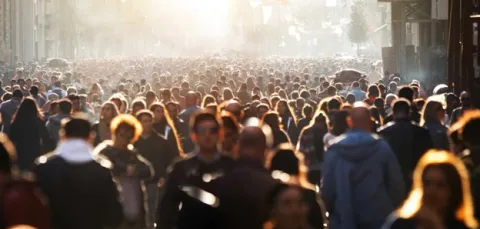The television series and films we watch can influence and change our behaviour. This means that characters who lead high-carbon lifestyles could encourage audiences to do the same.
Changing behaviours
Denise’s #ClimateCharacters campaign seeks to highlight how some of our most-loved, on-screen heroes are indirectly promoting unsustainable practices. She argues that it’s time to change how high-carbon activities are portrayed and responded to on screen, and that the film and television industries must ensure their protagonists are not presenting such lifestyles as glamorous and desirable.
“If owning five cars, jet setting and wearing a different outfit every day is seen as aspirational, then we’re never going to change things,” says Denise.
“You can see over and over how television series and films have opened people's eyes to important issues, and they can do an awful lot of good in establishing behaviour.”
A collaborative campaign
Denise collaborated with BAFTA and Rubber Republic on the #ClimateCharacters campaign, which produced graphics to highlight the behaviours of film and television characters and the impact they have on the environment.
One of Denise’s favourite examples compares James Bond, who drives single-use sports cars and has a wardrobe of luxury suits, to Jack Reacher, who travels by bus and buys his clothes second hand.
Most of the discourse around climate change and sustainability is focused on catastrophe. As a psychologist, I know that creating fear leads to denial and avoidance. In light of growing eco-anxiety, I wanted to find a fun way of getting the message across that wouldn't alienate people.
Denise Baden, Professor of Sustainable Business
Using these graphics, Denise asked the public whether they found the glamorous portrayal of excessive, high-carbon behaviours problematic. Early results show that people are already viewing this as an issue.
“During the pandemic, words like ‘lockdown’ and ‘social distancing’ entered the vocabulary in soaps and sitcoms very quickly. The climate crisis is upon us, but there are very few references to it in popular culture,” she adds.
Sustainable storytelling
Denise’s work goes beyond the screen, too: her Green Stories project has also been exploring how fiction and theatre can engage people in climate solutions. A British Academy SHAPE Involve and Engage Award is funding performances of the play Murder in the Citizens’ Jury, which raises awareness of citizens assemblies and their potential for more sustainable decision-making.
What’s more, 98 per cent of surveyed people who read Denise’s eco rom-com novel, Habitat Man, changed their behaviours based on the activities presented by the main protagonist, proving that it’s not just on-screen characters who can influence audiences’ habits.
Denise hopes that her positive and light-hearted approach to a serious topic will change the media we consume and, ultimately, standardise sustainable lifestyle choices.





